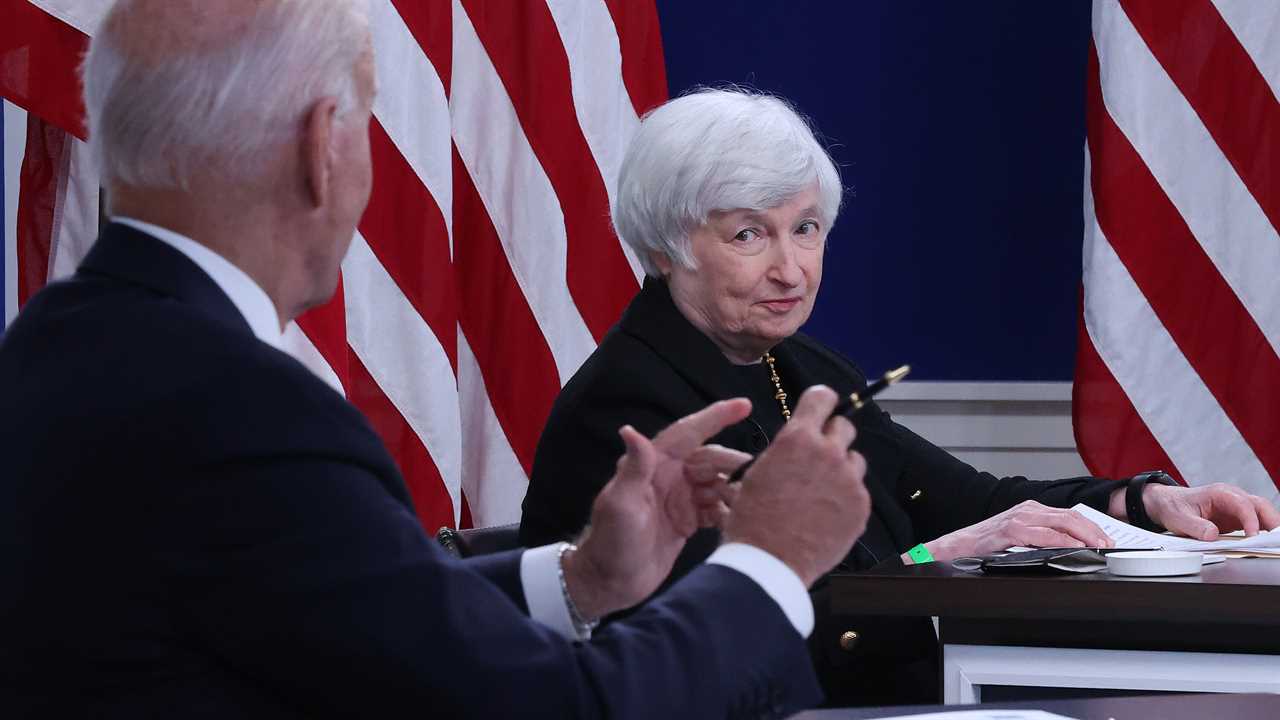
Over the last dozen years, there has been a sea change in how economists view many crucial questions related to deficits, public debt and the long-term payoffs of social spending.Most Democratic elected officials have embraced this new thinking, and it permeates the Biden domestic agenda. But a handful of Democrats are unpersuaded, holding to a view that was more widespread in the early Obama years, focusing on the risks of debt and spending.That tension, and how it resolves itself — or doesn’t — will be central to the evolution of the Biden presidency and American economic policy for years to come. On the surface, there is a clash between lawmakers with different political instincts. But there is also a clash over whether a more traditional view will prevail over a newer approach that has become mainstream among economists — especially those who lean left, but with some acceptance among center-right thinkers.Image“I just don’t want our society to move to an entitlement society,” Senator Joe Manchin of West Virginia has said. Credit...T.J. Kirkpatrick for The New York TimesIn the older view, it is irresponsible to increase long-term budget deficits because it will curtail private investment and risk a fiscal crisis. Social policies should be seen as a zero-sum trade-off between alleviating poverty and encouraging work. And any major new spending should be coupled with enough revenue-raising measures that the number-crunchers at the Congressional Budget Office conclude the numbers will balance over the next 10 years.This was the approach that the Obama administration and congressional Democrats took in passing the Affordable Care Act, a process made lengthier and more complex by these self-imposed constraints.But since those days, the intellectual ground has shifted in important ways.For one, long-term interest rates have fallen precipitously, even as very large budget deficits have become the norm. That implies the United States can maintain higher public debt than once seemed possible without excessively constraining private investment or facing excessive interest costs.“The long-term downward move in interest rates is the most important macroeconomic development that has occurred over the last couple of decades,” said Karen Dynan, a former official at the Federal Reserve and at the Obama Treasury Department who now teaches at Harvard. (One of her classes is on the economic crises of the 21st century, including a unit on the evolution in thinking they have prompted.)“Lower rates make deficit-financed spending less costly in budget terms and lowers the economic cost, because you can think of lower rates as a signal that the private sector has less demand for that money,” Professor Dynan sad.During the early Obama years, there was extensive discussion, including from some Democrats, that a loss of confidence in America’s debts could cause a fiscal crisis. The experience of the last decade has offered reassurance that in a nation like the United States, with a credible and competent central bank, such an event is unlikely.ImageRepublican legislators like Jeff Sessions and Paul Ryan, back, led the charge against spending in 2011 during the Obama era. Credit...Michael Reynolds/European Pressphoto Agency“I would have worried 10 years ago that as debt rose to 100 percent or more of G.D.P., folks lending to the U.S. government would start to feel differently about it, and the answer is that they don’t,” said Wendy Edelberg, a former chief economist of the C.B.O. who is now director of the Hamilton Project at the Brookings Institution. “I personally feel like I’ve learned a lot more in the last decade about how monetary and fiscal policy interact, especially in a crisis.”As evidence: The federal government, with extensive help from the Federal Reserve, launched a multitrillion dollar response to the pandemic despite coming into the crisis with an elevated public debt. Rather than spur a crisis of confidence in U.S. government bonds, their values have surged.The evolution in thinking is hardly universal, with some more conservative economists pointing to the risks that conditionscould change.“Any economic policy that begins with the premise, ‘Let’s just assume interest rates stay below 2008 levels forever,’ is extraordinarily hubristic and naïve,” said Brian Riedl, a senior fellow at the Manhattan Institute. “Particularly because there is no backup plan if they are wrong and rates ever do revert to pre-2008 levels. At that point, the policies driving the debt will be nearly impossible to reverse, and we could face a severe fiscal crisis.”That is very much the argument that Senator Joe Manchin has made in holding up the party’s social spending bill, seeking to lower its total cost and seek offsetting revenue increases that would reduce By: Neil Irwin
Title: Democrats’ Divide: Should Obama-Era Economic Ideas Prevail in 2021?
Sourced From: www.nytimes.com/2021/10/19/upshot/deficit-public-debt-debate.html
Published Date: Tue, 19 Oct 2021 09:00:23 +0000
Read More
Did you miss our previous article...
https://badpoliticians.com/us-politics/congress-passes-a-ban-on-goods-from-chinas-xinjiang-region-over-forced-labor-concerns
 UK PoliticsWorld PoliticsVideosPrivacy PolicyTerms And Conditions
UK PoliticsWorld PoliticsVideosPrivacy PolicyTerms And Conditions
